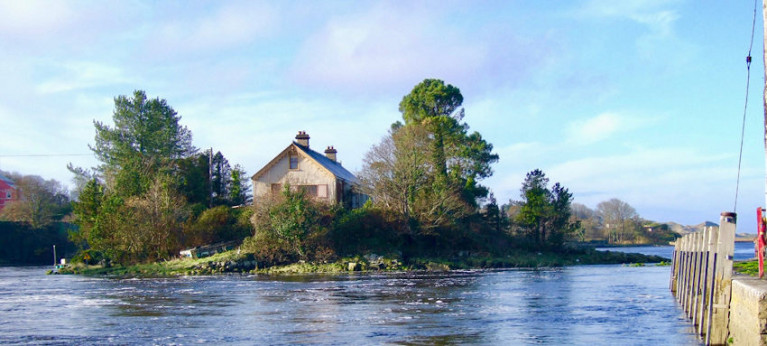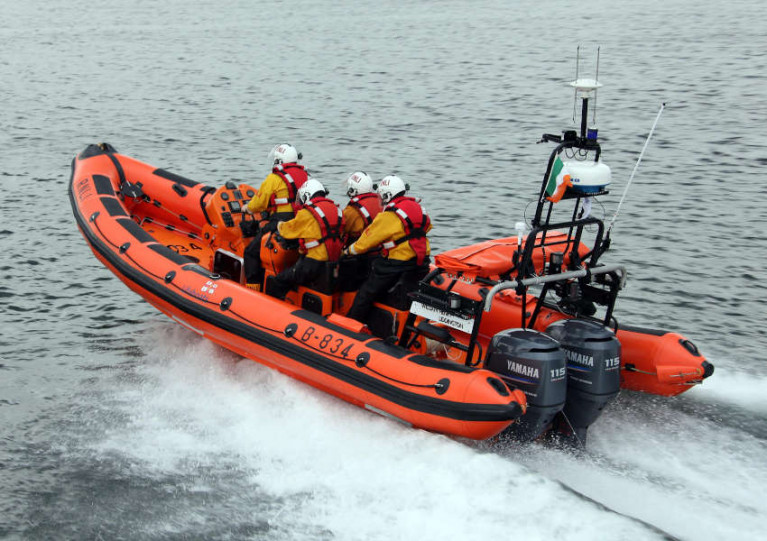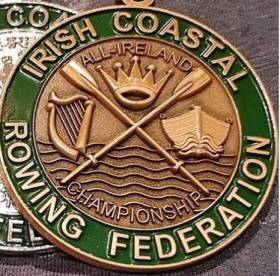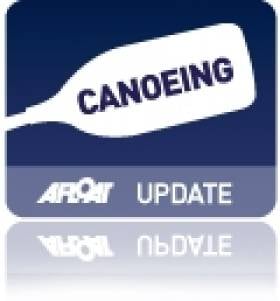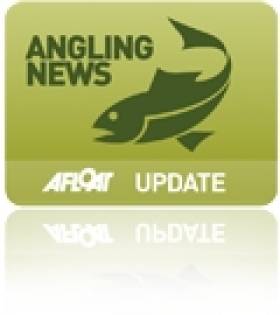Displaying items by tag: Ballyshannon
Own Your Own Island & Home in Co Donegal Estuary
A private residential island in Co Donegal is now on the market and could be the perfect getaway for those seeking a life of peace and tranquility — without stepping too far away from it all.
Former Glory has details of Inis Saimer, which is surrounded by the calm waters of the Erne Estuary adjacent to the town of Ballyshannon.
Despite its sheltered location, the town centre is just minutes from the residence — via a short boat ride from the island’s private jetty — and the island is soon to be connected with high-speed fibre optic broadband.
The Victorian-era residence on the island has three double bedrooms, a generous open-plan living and dining space as well as a large function room that offers stunning views of the estuary.
For more details, see the island’s own website and contact Brendan Connolly at +353 (0)87 2995400 or [email protected]. Price is available on application.
Bundoran Lifeboat Crew Help Rescue Man from Boat Aground Off Ballyshannon
Volunteers from Bundoran RNLI were part of a multi-agency operation to rescue a man whose small boat ran aground on rocks in Ballyshannon yesterday afternoon (Sunday 20 December).
The man raised the alarm from his boat which had run aground off the island of Inis Saimer just before 1pm, and Malin Head Coast Guard requested the launch of Bundoran’s lifeboat as well as the Sligo-based Irish Coast Guard helicopter Rescue 118.
However, it was determined that sea conditions would render it unsafe for the inshore lifeboat to get across the bar at the end of the Erne Estuary.
Instead, four lifeboat crew travelled by road to Ballyshannon where an Inland Fisheries Ireland patrol boat was already close to the casualty vessel.
Together the fisheries officers and lifeboat volunteers evacuated the man from his boat and brought him safely to shore and the into the care of paramedics.
In the meantime, the Bundoran lifeboat was transported by road under Garda escort to Ballyshannon, where it was launched and towed the casualty boat away from the rocks.
Bundoran lifeboat helm Michael Patton said: “This was another good outcome with the cooperation of our colleagues at Rescue 118, Inland Fisheries [Ireland], the National Ambulance Service and the Garda Siochana.
“We were glad to be able to get the man safely off the boat and return his boat to him.
“He was also wearing a lifejacket, and we would remind anyone taking to the water that this is an essential piece of equipment anytime you set sail.”
Galley Flash Win All Ireland Coastal Title
#CoastalRowing: Galley Flash won the senior men’s title at the All Ireland Coastal Rowing Championships in Ballyshannon, Donegal. The West Cork crew led for virtually all the race from local rivals Kilmacsimon, with Courtmacsherry always in third.
Vartry won the intermediate title by two lengths.
Workmen’s from Kerry won a good final of the Senior Ladies competition. Galley Flash led early on, but Workmen’s had taken the lead by the turn and went on to forge a clearwater advantage, though Galley Flash finished well.
All Ireland Coastal Rowing Championships, Ballyshannon, Donegal (Selected Results)
Men
Senior: 1 Galley Flash 11 min 16 sec, 2 Kilmacsimon 11:21, 3 Courtmacsherry 11:26. Intermediate: Vartry. Junior: Ring.
Women
Senior: 1 Workmen’s 7:34, 2 Galley Flash 7:38, 3 Kilmacabea 7:49. Inter: Worken’s A 7:42. Jun: Kilmacsimon.
Father-Son Duo in Charity Paddle from Dublin to Donegal
#KAYAKING - A father-and-son duo from north Co Dublin will shortly embark on an epic kayak paddle from Dublin to Donegal, the Fingal Independent reports.
Dermot Higgins and his son Fionn, from Rush, will attempt to kayak from Dublin Port to the Atlantic Ocean at Ballyshannon - a distance of some 330km - by way of the Royal Canal, the River Shannon and Lough Erne.
The Higgins' - who believe they are the first to attempt such a feat - will be completely self-sufficuent for the duration of the challenge, which is hoped to raised funds for the Rush Open Organisation for Transition Status (ROOTS), a charity that intends to help communities reduce their carbon footprint and face up to environmental challenges by encouraging sustainability.
The Fingal Independent has more on the story HERE.
Killybegs Angler Catches 11lb Sea Trout
The Donegal Democrat reports that a Killybegs angler landed a record-sized sea trout at the Erne esturary in Ballyshannon recently.
John Cunningham, 48, battled for 10 minutes with the 11lb 1oz monster trout before seizing his quarry. He described the experience as "good fun".
The fish was more than five times the average caught in Irish, and beat the previous area record by some 3lbs.
Now returned waters of the Erne, the sea trout will be officially branded a specimen fish by the Irish Specimen Fish Committee.



























